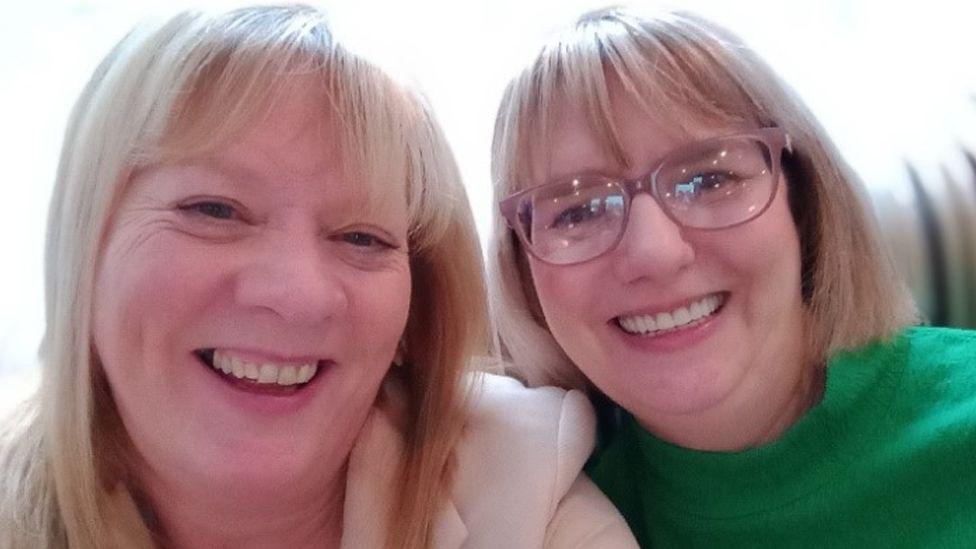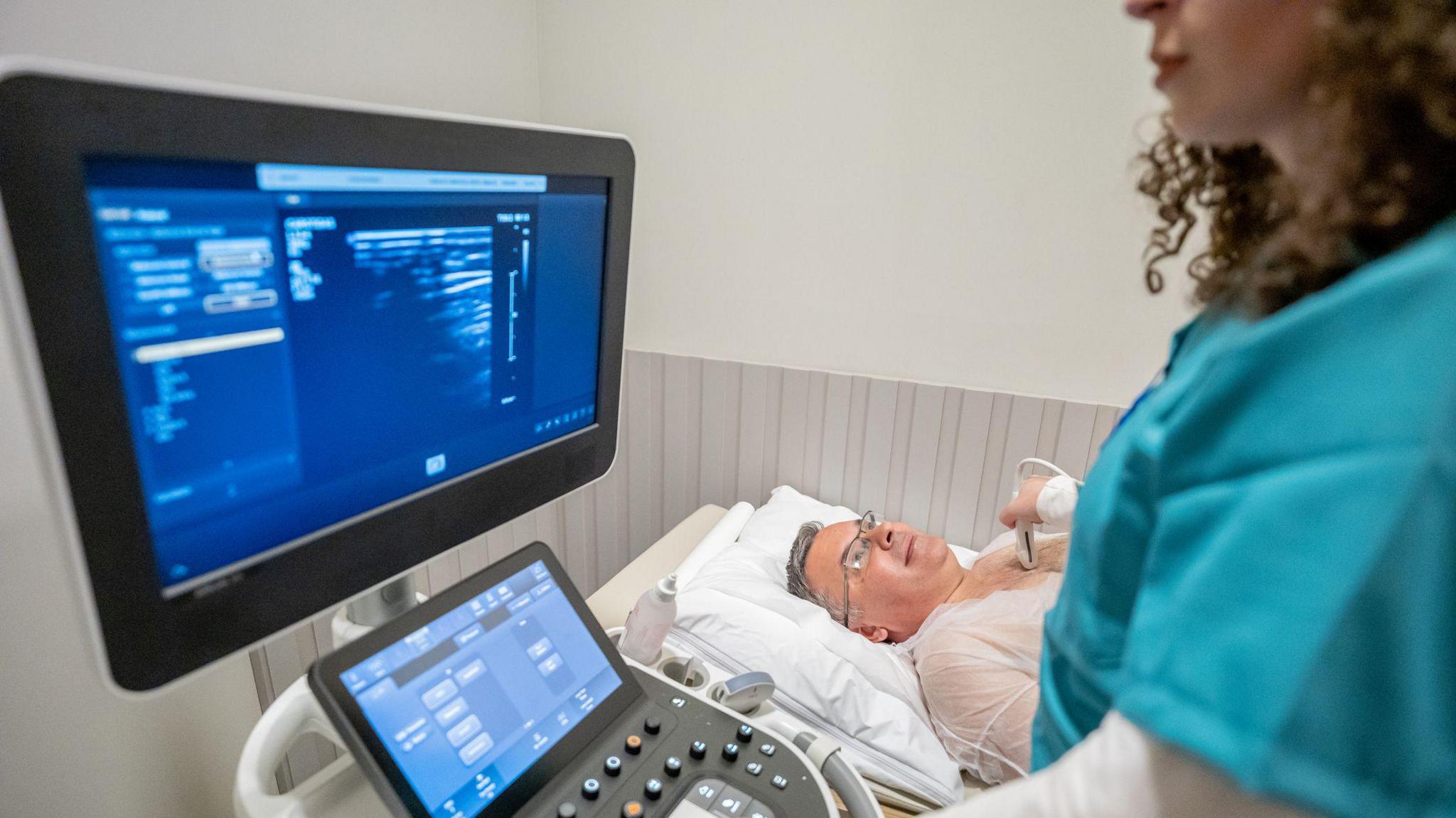I worry my heart will fail while I'm still on a waiting list

- Published
A woman with an irregular heart rhythm has spoken of her fears she will suffer cardiac failure amid record waiting times for treatment.
Angela Kenny suffered a relapse of atrial fibrillation (AF) last year, but was told a procedure to fix the problem could take up to 10 months.
It comes as a British Heart Foundation (BHF) report found the number of people on cardiology waiting lists was the highest to date in Scotland.
A Scottish government spokesperson said wait times had been "exacerbated" by the Covid pandemic.
Ms Kenny, 57, from Clackmannanshire, was initially diagnosed with AF in 2020.
The condition is an abnormal heart rhythm in the upper chambers which create a “fluttering” sensation.
The mother-of-three, underwent a procedure which involved delivering a small electric shock to reset the rhythm, known as a “cardioversion”, after a four-week wait.
But after going into AF again in September 2023, she was told she may need an “ablation,” which could take between nine and 10 months.
She has been unable to return to work as a care assistant at a hospital in Forth Valley since then.
Her father died following a heart attack at the age of 39 while her sister Teresa had an internal defibrillator fitted 12 years ago following a cardiac arrest.
Ms Kenny said she feared the wait for treatment combined with her family history of heart problems could cause lasting damage.
She said: “I have constant palpitations, am breathless, tired and dizzy.
“I’m anxious because the longer this goes on the more damage there could be to my heart, and it could ultimately cause heart failure.”
'Underinvestment' in cardiology
About three in 10 people in Scotland receive an echocardiogram within six weeks, according to the BHF report.
Figures also showed less than half of those referred for treatment see a cardiologist within 12 weeks.
About 1,200 people have been waiting for more than a year for the test – which can help catch certain heart diseases early.
More than 18,000 people died from heart and circulatory diseases in 2022 in Scotland, the highest number of deaths since 2008.

An echocardiogram could detect heart disease early.
The charity’s head, David McColgan, said “chronic underinvestment” in cardiology services had left Scotland unable to cope with the rise in those experiencing issues.
The Scottish government invested a total of £3m ($3.8m) after issuing two separate heart health action plans, in 2014 and 2021.
But Mr McColgan said that was not enough.
He said: "There is a human impact behind these figures - families dealing with grief and loss, worry and anxiety.
“This is a fraction of the funding needed to meet the challenges of cardiovascular disease in Scotland.
"A decade of chronic underinvestment and lack of focus by the Scottish government has left cardiology services unable to meet the pressures they are facing in Scotland."
Covid legacy
A Scottish government spokesperson said the number of new cases of coronary heart disease had fallen by 12% in the last decade, but acknowledged a “gradual increase” in deaths over the last four years.
They added the number of “whole-time equivalent” cardiologists had nearly doubled since September 2006, but health boards were continuing to battle with long waiting lists for treatment as a result of the coronavirus pandemic.
They said: “The gradual increase in the rate of deaths over the past four years, reinforces the importance of continued action to deliver our 2021 Heart Disease Action Plan.
“It sets out actions to minimise preventable heart disease and ensure that people with suspected heart disease have timely and equitable access to diagnosis, treatment and care.
“We remain determined to drive down waiting times and are working with boards to reduce long waits which have been exacerbated by the impacts of the global pandemic.”